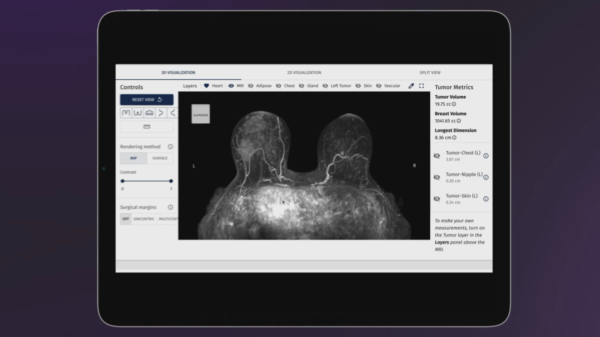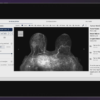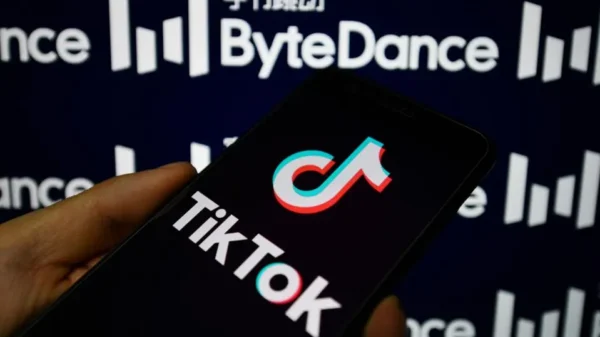Criminal groups are evolving, according to Microsoft Defense Report. There are also companies out there evolving to meet these challenges in information security.
Information security translates directly to the safety of people and protection of assets. In real world terms, this means a crowded stadium, a terrorist incident, individual and reputational protection, or security the supply chain. It involves multiple different industries, all of which need closed and trusted communications that can avoid eavesdropping or interception attempts.
When attempts fail or aren’t taken seriously, there are serious consequences.
For example, recent news coming out of Australia showcases the need for enhanced secure communication. A group of hackers infiltrated the private health insurance company, Medibank, and threatened to release sensitive health information, including noteworthy people like politicians and celebrities, unless they paid a ransom. The company called their bluff and the hackers dumped health records online for ten million Australians onto the dark web.
The data included everything from contact information, addresses to HIV status and drug addictions. The data reached the highest office in the land, as Anthony Albanese was the highest profile person effected.
Here are five companies in the secure communications space.
Palo Alto Networks provides secure communication for the Department of Defense
Palo Alto Networks (NASDAQ:PANW) subsidiary ThunderCat Technology entered into a nine-figure multiple year deal to outfit the Department of Defense (DoD) with its Palo Alto Networks Internet Operations Management (IOM) software. This includes Cortex Xpanse, which is the company’s attack surface management solution.
Palo Alto Networks Cortex product suite uses machine learning to give the U.S. military the ability to identify its known and unknown internet-facing assets, deploy playbooks to address vulnerabilities, and prioritize for remediation. Cortex Xpanse is a global attack surface management platform that lets customers reduce attack surface risks.
The Cortex Xpanse builds, keeps and updates a record of all internet-connected assets, which helps identify all potential exposure risks. This is important because the global attack surface is a digital space that keeps growing and changing. That means security needs to necessarily change with it. The Cortex Xpanse research team continually studies the global attack surface through continuous monitoring of over 50 million IP addresses associated with over a hundred global enterprises.
“This multiyear partnership is one of the largest software deals in Palo Alto Networks’ history and reinforces that our investment in next-generation security products is meeting the evolving needs of our customers,” said Nikesh Arora, chairman and CEO of Palo Alto Networks.
“By providing centralized visibility and situational awareness over its entire global network, we will help the U.S. Department of Defense fulfill its mission of ensuring our nation’s security,” Arora said.
$67 million over three years
Palo Alto Networks is a cybersecurity software company. It provides a suite of cybersecurity options to thousands of customers all over the world over all sectors, including 85 of the Fortune 100. Its core products include advanced firewalls and cloud-based software that augmented and push those firewalls to cover other aspects of security.
“Palo Alto Networks continues to deliver innovative solutions that protect the Department of Defense in a rapidly changing threat landscape,” said Justin Robinson, chief technology officer for ThunderCat Technology. “Through our partnership with Palo Alto Networks, ThunderCat will deliver increased visibility across the Department of Defense.”
RadioIP chooses NexNav for z-axis location intelligence
RadioIP, a Canadian-based privately held software company dealing in mobile data and mobile virtual private networks (VPN), chose NextNav (NASDAQ:NN) earlier this week for its z-asxis location intelligence software.
The deal here involves keeping first responders safe and located securely while maintaining privacy to outside networks and would-be interlopers. NextNav’s Pinnacle network does this, providing efficiency and connectivity intelligence with a secure and location-intelligent network that allows for precise tracking without the necessity of a screen.
The company designed Armada VPN to secure responder end points and resolve unique customer needs, which include z-axis requirements. Specifically, the z-axis pertains to advancements in location technology like GPS, which is usually horizontal only, and now includes the vertical dimension in space.
RadioIP’s Armada VPN mobile app allows presently for x/y location, and adding NextNav’s z-axis will give command a deeper connection. This includes monitoring the health of the connection, but also the ability to locate personnel in urban environments where the vertical location is critical.
RadioIP can review all locations
Combined with RadioIP’s Synopsis Metrics platform, agencies can view all locations and network performance so responders can remain secure, and the connectivity they require performs at optimal levels.
At its core, NextNav develops GPS systems. It also has an entire ecosystem of applications and services reliant on vertical location and geolocation tech. The company’s Pinnacle network provides vertical positioning reflecting the 3D world. The company deploys the Pinnacle network in 4,400 cities and towns in the United States, and has captured 90 per cent of buildings with more than three stories.
In contrast, RadioIP offers mobile VPN solutions to meet challenges associated with wireless networks. It works with corporations, utilities, and government agencies on four continents.
BlackBerry extends its secure communication into the Asia Pacific market
BlackBerry (NYSE: BB) (TSX:BB) is expanding its global footprint for its SecuSUITE partners in the Asia Pacific (APAC). It has three new companies certified and trained to deliver the software for governments and enterprises.
“Recent events in Australia and the Asia Pacific continue to show why information security must be impenetrable. Surveillance, espionage and interception of calls and messaging is on the rise, so to ensure all back doors are fully closed, a more complete approach to securing real-time information with reliable and easy-to-use technology is imperative,” according to David Wiseman, BlackBerry’s vice president of secure communications.
SecuSUITE protects governments against both eavesdropping threats to national security communications, and business communications of executives. It’s rolled out using a secure app using iOS, Android or windows devices. It can also be deployed easily to an existing phone, so companies and governments won’t have to issue secure devices.
The SecuSUITE also uses secure end-to-end encryption for both one-to-one and group calls, messages, file exchanges and group chats. Additionally, it protects foreign calls to any home country number.
“As a leading provider of counterintelligence, counterterrorism intelligence, digital forensics, geopolitical risk and other solutions, we understand that the technology tools we provide our clients must have bullet-proof levels of security,” said Navid Sobbi, CEO of NSI Global.
BlackBerry does more than just make phones
BlackBerry started as a mobile phone company in the 1990’s, and expanded to include intelligent security software and services. Now it’s software suites are in demand from enterprises and governments around the world. It’s responsible for securing over 500 million endpoints, including 195 million vehicles. It’s based in Waterloo, Ontario, and it uses artificial intelligence to deliver cybersecurity, safety and data privacy solutions.
Read more: BlackBerry pulls in government contract with NCI Agency for security platform
CEVA and Texas Instruments release speech recognition software
CEVA (NASDAQ:CEVA) released its WhisPro speech recognition software supporting designs using the Texas Instruments (NASDAQ:TXN) SimpleLink WiFi CC3235x Wireless MCU family.
The development kit gives full customization to wake words and voice commands for the network.
The Voice User Interface (VUI) has become a primary interface for many applications for internet of things technology. It provides a hands-free interface for individuals to use wearables and other endpoint devices in their smart homes, smart appliances. These also extend to industrial uses, automotive, medical and beyond.
Engineers using the CC3235x wireless MCU can add speech recognition capabilities to IoT devices. Examples of these include wake words and speech commands. It also works as a host for multiple wake words, including standard AI assistants like Alexa. The tech incorporates multiple languages and up to 30 tailored commands.
“With exceptional performance and the capability to customize the model to each customer’s requirements, the hardware offering from TI when paired with our software will enable our mutual customers to deliver high performance, cost-efficient solutions for voice-enabled IoT endpoints and devices,” said Chad Lucien, vice president and general manager of the sensing and audio business unit at CEVA.
CEVA is a secure communication technology company that licenses wireless connectivity and smart sensing technology. It provides Digital Signal Processors, AI engines, wireless platforms, cryptography cores and software for sensor fusion, image enhancement, computer vision, voice output and artificial intelligence.
According to Mordor Intelligence, the voice recognition market is expected to grow at a CAGR of 16.8% from 2021 to 2026, reaching USD $27.2 billion by 2026.
Norton encourages safety this holiday season
Cyber Monday is the busiest online shopping day of the year. Norton, a subsidiary of the cyber safety brand Gen Digital (NASDAQ:GEN) (formerly NortonLifeLock), is encouraging shoppers to protect themselves against online fraud and identity theft.
Cyber Monday sales are anticipated to get over $200 billion in 2022 as shopping value bounces year over year. Contingent with that, of course, is cybercrimes like fraud and identity theft.
1 in 4 U.S. adults (25 per cent) revealed they had been targeted by a scam while shopping online, according to a study from Norton. Of these, nearly 40 per cent of shoppers reporting indicate they have fallen victim to a scam during the holiday shopping season.
“We want to help bring back the joy of the holiday season and empower everyone with the resources they need to shop online safely,” said Kevin Roundy, researcher and technical director at Norton Labs. “From inflation to supply chain issues, there are so many things out of our control this holiday season. Taking the time to pause and take proactive steps to protect your digital and financial life before Cyber Monday is one way everyone can take back control,”
The majority of Americans (89 per cent) are confident about their online safety. Conversely, nearly 45 per cent admit they aren’t entirely sure of best practices. Rising costs and limited inventories of the gifts they would prefer have people willing to take more risks. Every 2 in 5 consumers report risking their personal information during the season.
Norton recommends maintaining your skepticism
The Harris Poll conducted the research in the United States on behalf of Norton. The survey included 1,000 adults aged 18 and over, polled between August 15 and September 1, 2022. Data are weighted by age, gender, race or ethnicity, region, education, marital status, household size, household income, and propensity to be online to bring them in line with their actual proportions in the population.
Respondents were self-selected and the sampling precision of Harris online polls used a Bayesian credible interval. The sample data was accurate to within +3.8 percentage points using a 95 per cent confidence level.
The suggestions offered by Norton for shoppers include:
Keeping to sites you know and trust. Maintain your skepticism—if something looks too good to be true, it probably is. Finally, be cautious about keeping your credit card information on the accounts you make. Hacks happen and leaks are common. Finally, research charities before you donate.
Follow Joseph Morton on Twitter
joseph@mugglehead.com














